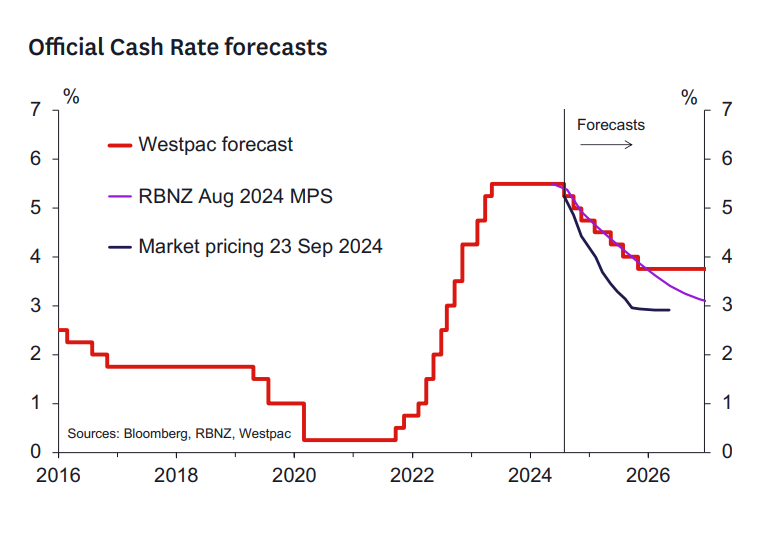Economic outlook divides experts

Westpac chief economist Kelly Eckhold (pictured above) reported a significant shift towards dovish views since May.
Weaker economic indicators and a better short-term inflation outlook have allowed the Reserve Bank (RBNZ) to shift its focus from reducing inflation to supporting demand and employment.
With an easing cycle underway, the main question now is how fast and deep it will go.
“The RBNZ now feels it can reorientate its reaction function from bringing inflation down to supporting demand and employment,” Eckhold said.

Hawks warn of inflation risks
Hawks argue that the economy isn’t as weak as the RBNZ fears, cautioning against aggressive easing.
Despite signs of a downturn, consumption and investment spending have remained resilient, and unemployment remains lower than anticipated.
“We are living beyond our means even with interest rates over 5%,” Eckhold said. “This suggests the productive capacity of the economy is weak and significant easing will reignite inflation pressures before long.”
Doves push for faster easing
Doves argue that with inflation falling within the target band, the RBNZ should move quickly to avoid deeper economic instability.
“Inflation is set to be comfortably within the RBNZ’s target band over the coming year,” Eckhold said.
Doves believe that easing rates faster could prevent a prolonged slowdown in activity and employment, potentially avoiding a more severe easing cycle in the future.
Domestic inflation remains elevated
While the headline inflation rate is set to fall, domestic inflation pressures persist.
Hawks point out that despite easing monetary conditions, sectors like construction continue to see rising costs.
“Domestic inflation pressures remain elevated, suggesting that the RBNZ should take a cautious approach to policy easing,” Eckhold said, warning that quick rate cuts could stoke inflation once more, particularly in the housing market.
Global and local risks add to debate
Hawks highlight global and domestic risks that could complicate the RBNZ’s policy direction.
Rising commodity prices, a potential housing market rebound, and a stronger primary sector could lift economic growth, countering the effects of easing.
Meanwhile, doves are concerned about global deflationary pressures from China and fiscal tightening in other economies, which could weigh on New Zealand’s growth.
Monetary policy’s critical role
The debate continues as hawks call for caution, warning that rapid rate cuts could undermine economic stability by reigniting inflation.
In contrast, doves argue that easing is necessary to preserve demand and prevent deeper economic pain.
With global interest rates trending lower, the RBNZ faces a tough balancing act.
“We invite feedback on the perspectives we discuss here and any additional relevant viewpoints,” Eckhold said, encouraging ongoing discussion about New Zealand’s monetary policy path.
Get the hottest and freshest mortgage news delivered right into your inbox. Subscribe now to our FREE daily newsletter.



